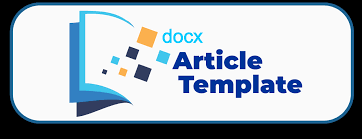Participatory Action in Optimizing the Operational Curriculum of Educational Units containing the Profile of Pancasila and Rahmatan lil Alamin
DOI:
https://doi.org/10.37680/amalee.v5i1.4492Keywords:
Character, Educational Unit Operational Curriculum, Pancasila Student ProfilesAbstract
The essential need for character education development in the Operational Curriculum of Educational Units (KOSP) at SDN 3 Pagentan and SDN 2 Wonorejo is evident. However, the existing KOSP documents, initially adapted from another school due to a lack of knowledge in KOSP development, do not fully align with the characteristics and needs of the school community. This service empowers teachers in both schools to enhance their understanding of KOSP and develop documents enriched with the Strengthening Project for the Profile of Pancasila-Rahmatan lil Alamin Students (P5-RA), considering each school's unique characteristics and needs. Using a participatory action research (PAR) approach, the service involves problem identification, analysis, action preparation, program socialisation, implementation, and monitoring and evaluation. The instruments include tests and assessment rubrics, revealing a significant improvement in teachers' knowledge of KOSP, with scores increasing from 71 to 80 in the moderate category. The service activities also produce a grand design of character integrated into KOSP documents enriched with P5-RA, developed by teachers in both schools based on their unique characteristics and needs. In summary, this service positively impacts teachers' knowledge and optimises the availability of KOSP documents enriched with P5-RA as guidelines for strengthening character education in schools.
References
Akbar, S. (2013). Model Triprakoro dalam Pembelajaran Nilai dan Karakter Kepatuhan untuk Sekolah Dasar. Jurnal Ilmu Pendidikan, 19(1), 106–112. https://doi.org/http://dx.doi.org/10.17977/jip.v19i1.3762
Anwar, C., Saregar, A., Hasanah, U., & Widayanti, W. (2018). The Effectiveness of Islamic Religious Education in the Universities: The Effects on the Students’ Characters in the Era of Industry 4.0. Tadris: Jurnal Keguruan Dan Ilmu Tarbiyah, 3(1), 77. https://doi.org/10.24042/tadris.v3i1.2162
Arifin, Z. (2016). Evaluasi Pembelajaran. PT. Remaja Rosda Karya.
Baker, M. J. (2015). Collaboration in collaborative learning. Interaction Studies. Social Behaviour and Communication in Biological and Artificial Systems, 16(3), 451–473. https://doi.org/10.1075/is.16.3.05bak
Cornish, F., Breton, N., Moreno-Tabarez, U., Delgado, J., Rua, M., de-Graft Aikins, A., & Hodgetts, D. (2023). Participatory Action Research. Nature Reviews Methods Primers, 3(1), 34. https://doi.org/10.1038/s43586-023-00214-1
Crossan, M. M., Byrne, A., Seijts, G. H., Reno, M., Monzani, L., & Gandz, J. (2017). Toward a Framework of Leader Character in Organizations. Journal of Management Studies, 54(7), 986–1018. https://doi.org/10.1111/joms.12254
Dempster, M. (2020). An exploration of character education as a tool of ‘moral repair’in the developing world. Journal of Religious Education, 68(2), 249–265.
Fahmi, M., Prasetia, S. A., . S., & Nisa’, Z. (2021). Quo Vadis Pendidikan Karakter di Indonesia. Tabyin: Jurnal Pendidikan Islam, 3(01), 23–45. https://doi.org/10.52166/tabyin.v3i01.123
Faizah, S. N., Dina, L. N. A. B., & Anggraini, A. E. (2023). Realize Tolerant Students Through Strengthening the Profile of Pancasila Students with Global Diversity in Elementary Schools. QALAMUNA: Jurnal Pendidikan, Sosial, Dan Agama, 15(1), 439–452. https://doi.org/10.37680/qalamuna.v15i1.2149
Fomunyam, K. G., & Teferra, D. (2017). Curriculum Responsiveness within the Context of Decolonisation in South African Higher Education. Perspectives in Education, 35(2). https://doi.org/10.18820/2519593X/pie.v35i2.15
Hake, R. R. (1998). Interactive-engagement Versus Traditional Methods: A six-thousand-Student Survey of Mechanics Test Data for Introductory Physics Courses. American Journal of Physics, 66(1), 64–74. https://doi.org/10.1119/1.18809
Hasibuan, R. H., Dwiningsih, A., & Annisa, A. (2023). Pelatihan Penyusunan Kurikulum Operasional Satuan Pendidikan (KOSP ) Berbasis Kurikulum Merdeka Pada Guru Paud Se - Kota Medan. Altafani, 2(2), 228–237. https://doi.org/10.59342/jpkm.v2i2.186
Hastasasi, W., Harjatanaya, T. Y., Kristiani, A. D., Herutami, I., & Andiarti, A. (2022). Panduan Pengembangan Kurikulum Operasional di Satuan Pendidikan. Badan Standar, Kurikulum, dan Asesmen Pendidikan Kementerian Pendidikan, Kebudayaan, Riset, dan Teknologi Republik Indonesia.
Husain, D. L., Agustina, S., Rohmana, R., & Alimin, A. (2023). Pelatihan Penyusunan Kurikulum Operasional Satuan Pendidikan (KOSP) sebagai Persiapan Implementasi Kurikulum Merdeka di PAUD Kab. Kolaka Utara. JIIP - Jurnal Ilmiah Ilmu Pendidikan, 6(1), 13–19. https://doi.org/10.54371/jiip.v6i1.1375
I Wayan Sumandya, I Komang Sukendra, Made Irma Suryani, & Dwi Prinicila Pramesuari. (2022). PKM. Penyusunan Kurikulum Oprasional Sekolah di Penggerak Angkatan 2 Provinsi Bali. Jurnal Pengabdian Kepada Masyarakat Widya Mahadi, 2(2), 129–137. https://doi.org/10.59672/widyamahadi.v2i2.1964
Ima Frima Fatimah. (2021). Strategi Inovasi Kurikulum. EduTeach : Jurnal Edukasi Dan Teknologi Pembelajaran, 2(1), 16–30. https://doi.org/10.37859/eduteach.v2i1.2412
Jenkins, G. (2020). Teacher agency: the effects of active and passive responses to curriculum change. The Australian Educational Researcher, 47(1), 167–181. https://doi.org/10.1007/s13384-019-00334-2
Lickona, T. (2022). Character matters (Persoalan karakter): Bagaimana membantu anak mengembangkan penilaian yang baik, integritas, dan kebajikan penting lainnya. Bumi Aksara.
Muhlasin, M. (2018). Meningkatkan Kompetensi Kepala Sekolah dalam Menyusun KTSP melalui Pembinaan Terprogram. Sosialita: Kajian Dan Pendidikan Ilmu Pengetahuan Sosial, 10(1). https://journal.upy.ac.id/index.php/sosialita/article/view/685
Muhtarom, A. (2018). Participation Action Research dalam Membangun Kesadaran Pendidikan Anak di Lingkungan Perkampungan Transisi Kota. Dimas: Jurnal Pemikiran Agama Untuk Pemberdayaan, 18(2), 259–278. https://doi.org/10.21580/dms.2018.182.3261
Nissen, J. M., Talbot, R. M., Nasim Thompson, A., & Van Dusen, B. (2018). Comparison of Normalized Gain and Cohen’s d for Analyzing Gains on Concept Inventories. Physical Review Physics Education Research, 14(1), 010115. https://doi.org/10.1103/PhysRevPhysEducRes.14.010115
Pak, K., Polikoff, M. S., Desimone, L. M., & Saldívar García, E. (2020). The Adaptive Challenges of Curriculum Implementation: Insights for Educational Leaders Driving Standards-Based Reform. AERA Open, 6(2), 233285842093282. https://doi.org/10.1177/2332858420932828
Rencana Strategis Kementerian Pendidikan dan Kebudayaan Tahun 2020-2024, (2020).
Rijanto, A., & Rahayuningsih, S. (2023). Pendampingan Sekolah Penggerak Jenjang Sekolah Dasar di Kabupaten GresikSebagai Upaya Peningkatan Mutu Kurikulum Operasional Sekolah (KOS). AMMA : Jurnal Pengabdian Masyarakat, 1(12), 1676–1681.
Scherpereel, C. M. (2024). The Power of Contextual Learning: Using the Juice SPC Game to Teach Control Charts in Operations Management. Developments in Business Simulation and Experiential Learning, 51, 141–157.
Shawer, S. F. (2017). Teacher-driven Curriculum Development at the Classroom Level: Implications for Curriculum, Pedagogy and Teacher Training. Teaching and Teacher Education, 63(April), 296–313. https://doi.org/10.1016/j.tate.2016.12.017
Strogilos, V., Lim, L., & Binte Mohamed Buhari, N. (2023). Differentiated Instruction for Students with SEN in Mainstream Classrooms: Contextual Features and Types of Curriculum Modifications. Asia Pacific Journal of Education, 43(3), 850–866. https://doi.org/10.1080/02188791.2021.1984873
Visser, S. S., & Kreemers, D. (2020). Breaking through boundaries with PAR – or not? A research project on the facilitation of participatory governance through participatory action research (PAR). Educational Action Research, 28(3), 345–361. https://doi.org/10.1080/09650792.2019.1624380
Voogt, J. M., Pieters, J. M., & Handelzalts, A. (2016). Teacher Collaboration in Curriculum Design Teams: Effects, Mechanisms, and Conditions. Educational Research and Evaluation, 22(3–4), 121–140. https://doi.org/10.1080/13803611.2016.1247725
Wright, D. E. (2015). Social Justice Education and Participatory Action Research. Routledge Taylor and Francis Group.
Xu, F. (2019). Towards a rational constructivist theory of cognitive development. Psychological Review, 126(6), 841–864. https://doi.org/10.1037/rev0000153
Downloads
Published
How to Cite
Issue
Section
License
Authors who submit manuscript retain its copyright and grant Amalee right of first publication licensed under a Creative Commons Attribution-ShareAlike 4.0 International License (CC BY-SA 4.0) that allows others to access (search, read, download, and cite), share (copy and redistribute the material in any medium or format) and adapt (remix, transform, and build upon any material) the work for any lawful purpose, even commercially with an acknowledgement of the work's authorship and initial publication in Amalee: Indonesian Journal of Community Research and Engagement.














